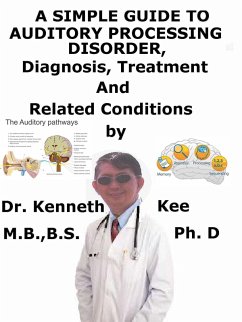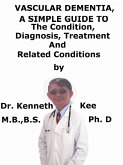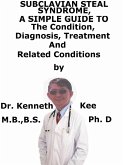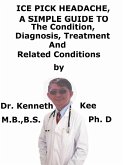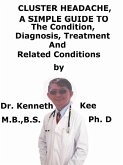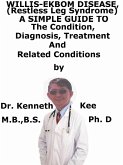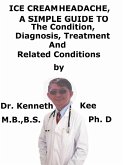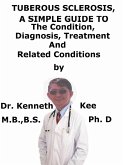An auditory processing disorder (APD) is a disorder that affects the way the brain hears and processes language.
Hearing is a complex process.
Sound waves from the environment travel into the ears where they are converted to vibrations in the middle ear.
When the sound vibrations reach the inner ear, different sensory cells produce an electrical signal that travels through the auditory nerve to the brain.
In the brain, this nerve signal is evaluated and processed to turn it into a sound that the person can identify.
People with APD have a difficulty with this processing stage.
Due to this, they have problem comprehending and reacting to sounds in their environment.
A person with APD may have normal results on a basic hearing test; but their brain will not always process the sounds or spoken words properly.
This disorder may also be termed Central Auditory Processing Disorder or CAPD.
At one time, people who had this disorder may have believed they had a hearing problem.
The problem is within processing the sounds being heard.
The ear hears the sounds but occasionally cannot process where the sounds begin or translate the sounds when the environment is noisy.
People with auditory processing disorder (APD) have a difficult time hearing and processing small sound differences in words.
When someone says, "Please raise the hand," and the person hear words more like "Please haze the plan."
The person tells the children, "Look at the cows over there," and they may hear these words instead, "Look at the clown on the chair."
APD is not hearing loss or a learning disorder.
It indicates the brain does not "hear" sounds in the normal way.
It is not a disorder with the understanding of the meaning of words.
It is not a stand-alone disorder and there is no agreement about diagnostic criteria.
Auditory Processing Disorder is not present in the Diagnostic Statistical Manual (DSM 5) of mental health disorders.
Communication disorders and specific learning disorders on the other hand are clearly specified.
People of all ages can develop APD.
It often begins in childhood, but some people experience the disorder later.
Between 2% and 7% of children have it, and boys are more prone to have it than girls.
Risk factors are:
1. Delays or disorders with the development of the region of the brain that processes sounds
2. Genetics
3. Neurological changes linked to aging
4. Neurological injury that happens due to disorders such as degenerative diseases, an infection, or a head injury
5. Recurring ear infections
6. Complications at birth - during or shortly after birth, such as lack of oxygen to the brain, low birth weight, and jaundice
To test for APD the person may be asked to:
1. Listen to speech with background noise
2. Spot small changes in sounds
3. Fill in missing parts of words
Other tests may be:
1. Having electrodes on the head to measure how the brain reacts to sound
2. Speech and language tests
3. Memory, problem-solving and concentration tests
There is no cure for APD but there are treatments that can help.
1. Helping the person to learn how to better process sounds
2. Teaching the person skills to help compensate for the APD
3. Helping the person to make changes to the learning or working environment to better manage the disorder.
TABLE OF CONTENT
Introduction
Chapter 1 Auditory Processing Disorder
Chapter 2 Causes
Chapter 3 Symptoms
Chapter 4 Diagnosis
Chapter 5 Treatment
Chapter 6 Prognosis
Chapter 7 Dyslexia
Chapter 8 Attention-Deficit Hyperactivity disorder
Epilogue
Dieser Download kann aus rechtlichen Gründen nur mit Rechnungsadresse in A, B, CY, CZ, D, DK, EW, E, FIN, F, GR, H, IRL, I, LT, L, LR, M, NL, PL, P, R, S, SLO, SK ausgeliefert werden.

